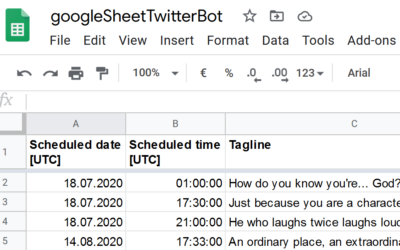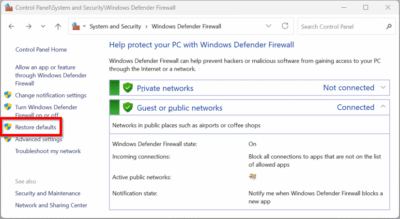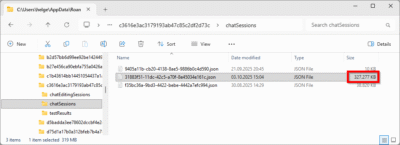Should I Have Separate Personal & Professional Twitter Accounts?
That was a question I was asking myself more and more recently. After a bit of deliberation, I answered it with yes. This article summarizes my reasoning.

My Twitter History
I have been on Twitter for more than 11 years. If I remember correctly, Brian Madden – whose website was extremely popular in the Citrix community at the time – had urged people to join Twitter a little earlier. I responded to Brian’s call and quickly realized that Twitter was a great platform that allows people with a common interest to identify each other and communicate. In my case, that interest was end-user computing, of course, the products and technologies from companies like Citrix or Microsoft. After joining Twitter, at conferences, many of the names were known to me, and sometimes I to them. Getting into contact was so much easier. The major difficulty was recognizing someone from their Twitter profile picture (something we often joked about).
People follow you for a topic – or because you’re famous.
How to Get People to Follow You
Over the years I increased my follower count to nearly 5,200. That is far from being influential, but it did allow me to learn a thing or two along the way. Here are the different ways to gain followers, as I understand them, in no particular order.
Be Famous
If you are famous, people will follow you just like that. Stop reading. This post is not for you.
Follow Many Others, Hoping They Re-Follow
This is a pretty lame tactic that nevertheless worked well in the early days of Twitter. Follow thousands of others in the hope that they will follow you in turn. Some will do that, even today. Yikes.
Speak Publicly
Public speaking at user groups or conferences is a great way to make a name for yourself. People will follow you much more readily if they already know your name; a small percentage of the audience might do so on the spot if they like what they are seeing and hearing.
Engage Others
Replying to a tweet with meaningful additional information or an intelligent question is a certain way to get noticed by the original author – if they have less than 20-50k followers. If they have more they get so many replies that yours most likely won’t stand out.
Blog And Tweet About It
Twitter is a fantastic platform to share what you’re publishing on your blog. Before Twitter, people used RSS readers to keep track of what was going on. Now they use Twitter and other social media. A solid way to build an audience is to regularly post new stuff on your site and tweet about it.
Tweet Cool/Interesting/Funny Things
This is yet another variant of the “make a name for yourself” theme. Find your voice, stick to a theme, and go. Countless Twitter accounts do just that. If your content is really good, you will get followers.
How Focused Should Your Tweets Be?
Once you’ve found your rhythm on Twitter using either one of the strategies outlined above, a mix of them, or even some cool whiz thing I am not even aware of, you’ll get to the question of focus. Once in a while, you’ll be tempted to tweet about a subject that is different from your main theme, the topic for which people follow you. This raises the question this article is about: should you mix personal and professional interests?
If your primary language is not English, there is another angle: should you sprinkle your English timeline with the occasional non-English tweet?
To answer these questions, I looked at the accounts I follow.
What Kind of Accounts I Follow
Before I click that “Follow” button on an account that looks promising, I make very sure that the author is worth my attention. I look at their timeline, checking whether most of their tweets are interesting to me. That boils down to two things:
- Focus: if you’re alternately tweeting about IT and your football club, you’re out. I only want your thoughts on IT.
- Quality: if you had your 15 minutes of (viral) fame but nothing else to back it up, you’re out. I want consistently interesting stuff in my timeline.
Summary: Why a Personal Account?
The above should have made it clear: I am not a big fan of mixed-topic accounts. I follow people/accounts for a reason and I want them to stick to their chosen topic.
My Reasons For Starting a Personal Twitter Account
To wrap this up, here are my reasons to start a personal Twitter account that is independent of my professional (business) account:
- I’m not famous. My followers are not interested in my day-to-day trivia but in the IT info which I compile.
- I’m interested in many more things than just IT. However, for the reasons outlined above, I want my professional account to stay focused.
- I want to be able to quote German sources and retweet German tweets (about topics other than IT).
Once I had separated my personal from my professional interests I realized there is an additional benefit: being able to switch from work (IT) mode to personal time much more easily. I found that during the day I mostly look at my professional account’s timeline while in the evenings I’m rather reading the tweets on the personal account.
By the way, in case you’re interested, my new personal account is @HelgesWelt. Expect mostly German content that only occasionally touches IT. You have been warned.









1 Comment
Something to consider on this is that your personal name is a method for hackers to scrape anything that belongs to you. DynDNS, Twitter, Email logon, domain, etc is now back on the table when some large company has a massive databreach. But if you use a character, or an alias, you can separate those.